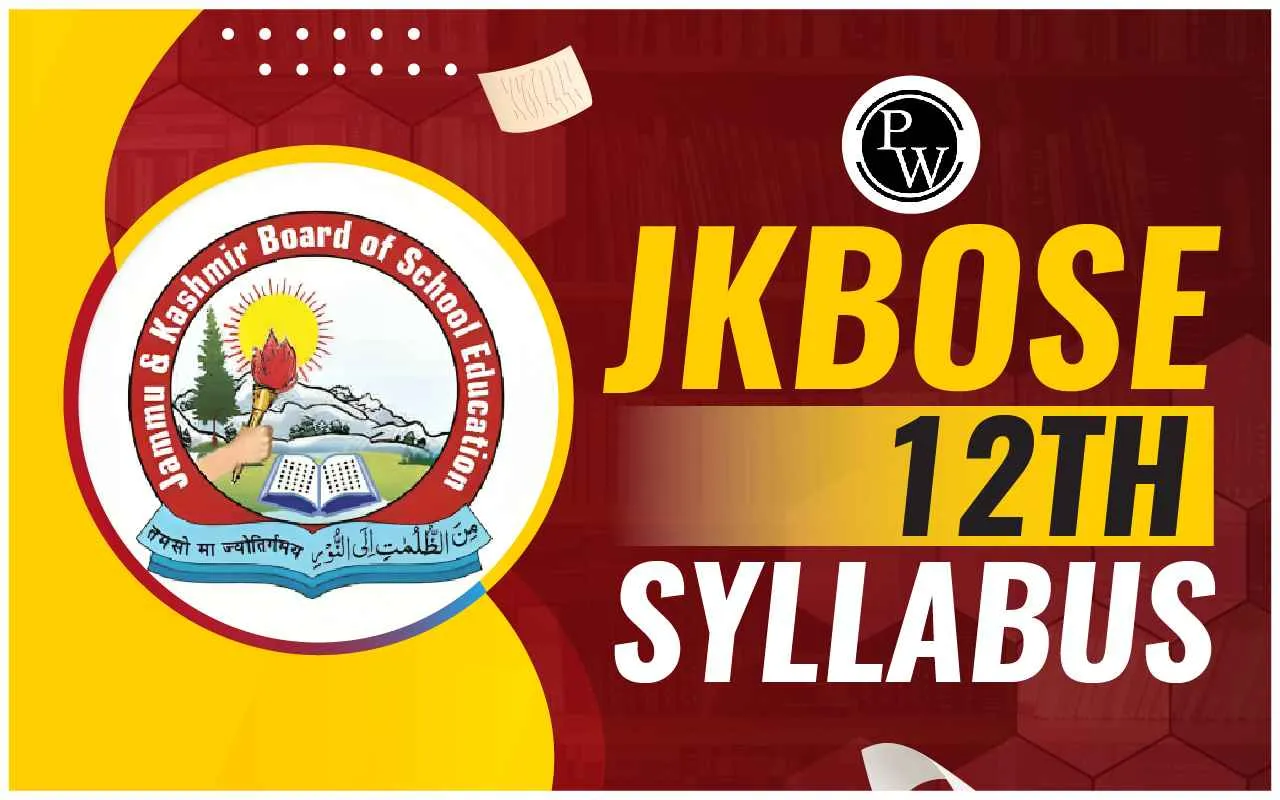
JKBOSE Class 10 Science Syllabus: Jammu and Kashmir State Board of School Education released the syllabus for Class 10 in June 2024 for the board examination 2024-25. The syllabus prioritizes understanding of concepts and focusing on core subjects like Biology, Physics, and Chemistry.
By focusing on core fundamentals, the syllabus prepares students not only for board exams but also for higher studies and competitive exams in the field of science. The exam pattern includes a variety of question types like long answers, short answers, very short answers, and multiple-choice questions that aim to test different levels of learning and comprehension.
JKBOSE Class 10th Supplementary Exam Time Table 2025
JKBOSE Class 10 Science Syllabus 2025
JKBOSE Class 10 Science Syllabus 2025 is divided into three sections: Biology, Physics, and Chemistry, each carrying different marks and weightage. Students must focus on every section as the three sciences separately make a subject and for higher studies it becomes important to understand their interest.
The syllabus clearly defines the marking scheme for the three science subjects Biology, Physics, and Chemistry. Each section of the syllabus focuses on key topics that develop both practical skills and theoretical understanding.
Physics emphasizes concepts like light, electricity, and the magnetic effects of current; Chemistry covers chemical reactions, acids, bases, and the periodic table; while Biology explores life processes, heredity, and our environment.
Apart from preparing students for board exams, the syllabus also helps students have a strong base for competitive exams like NEET and JEE. It helps students identify their interests early on, which is important when choosing subjects for higher studies.
|
JKBOSE Class 10 Science Syllabus 2025 |
|
|
Sections |
Marks |
|
Physics |
26 |
|
Chemistry |
26 |
|
Biology |
28 |
|
Total |
80 |
JKBOSE Class 10 Science Syllabus 2025 Marking Scheme
The marking scheme of the syllabus among various sub-subjects and units allows students to recognize the pattern and help them understand the important topics. Students must go through the marking scheme to plan their study timetable accordingly.
The study plan must prioritize units which carry high weightage of marks. Students must also practice the various types of questions that will appear in the exam.
The JKBOSE Class 20 Science syllabus put emphasis on the type of questions to provide conceptual understanding to the students rather than allowing them to simply memorize the concepts. A detailed explanation of the types of questions is given here:
Each section shall contain questions with internal choice:
-
3 long answers questions of 5 marks each (3 x 5 = 15 marks)
-
9 short answer questions of 3 marks each (9 x 3 = 27 marks)
-
10 very short answer question of 2 marks each (10 x 2 = 20 marks)
-
18 multiple choice questions of 1 mark each (18 x 1 = 18 marks)
|
JKBOSE Class 10 Science Syllabus 2025 Marking Scheme |
|
|
Section I: Physics |
|
|
Units |
Marks |
|
Light- Reflection and Refraction |
08 |
|
The Human Eye and the Colorful World |
05 |
|
Electricity |
06 |
|
Magnetic Effects of Current |
07 |
|
Section II: Chemistry |
|
|
Chemical Reactions and Equation |
06 |
|
Carbon and its Compounds |
08 |
|
Metals and Non-metals |
07 |
|
Acids, Bases and Salts |
05 |
|
Section III: Biology |
|
|
Life Processes |
08 |
|
Control and Co-ordination |
06 |
|
How do Organism Reproduce |
06 |
|
Heredity |
03 |
|
Our Environment |
05 |
JKBOSE Class 10 Science Syllabus 2025 Download PDF
The JKBOSE Class 10 Science Syllabus holds a great importance for students preparing for their board exams as it includes the marking scheme, the exam pattern, and details about the units included in the syllabus. Hence, it becomes important for every student to keep a copy of the downloaded syllabus. To download it, the syllabus PDF has been attached below:
Do you need help with your homework or preparing for exams?
Study without using the internet
JKBOSE Class 10 Science Syllabus 2025 Benefits
-
The syllabus promotes a balanced approach across subjects like Biology, Chemistry, and Physics. It allows students to learn about various fields of science and recognize their interests for higher studies.
-
The syllabus focuses on conceptual clarity rather than simple memorisation as the exam pattern includes MCQs, short answer, long answer, and very short answer questions.
-
The unit-wise marks distribution helps students to prioritize topics accordingly. It will help students in doing focused revision and managing time effectively.
-
It aims at comprehensive concept coverage with topics like Life Processes, Heredity, Light, Acids/Bases. It helps in building a strong base for higher studies.
-
It puts emphasis on application-based learning as it includes numerical problems in Chemistry and Physics.
JKBOSE Class 10 Science Syllabus 2025 FAQs
What is the syllabus of class 10 science?
What are the new subjects introduced by JKBOSE?
Which is hardest subject in science?
Is Class 10 science difficult?










